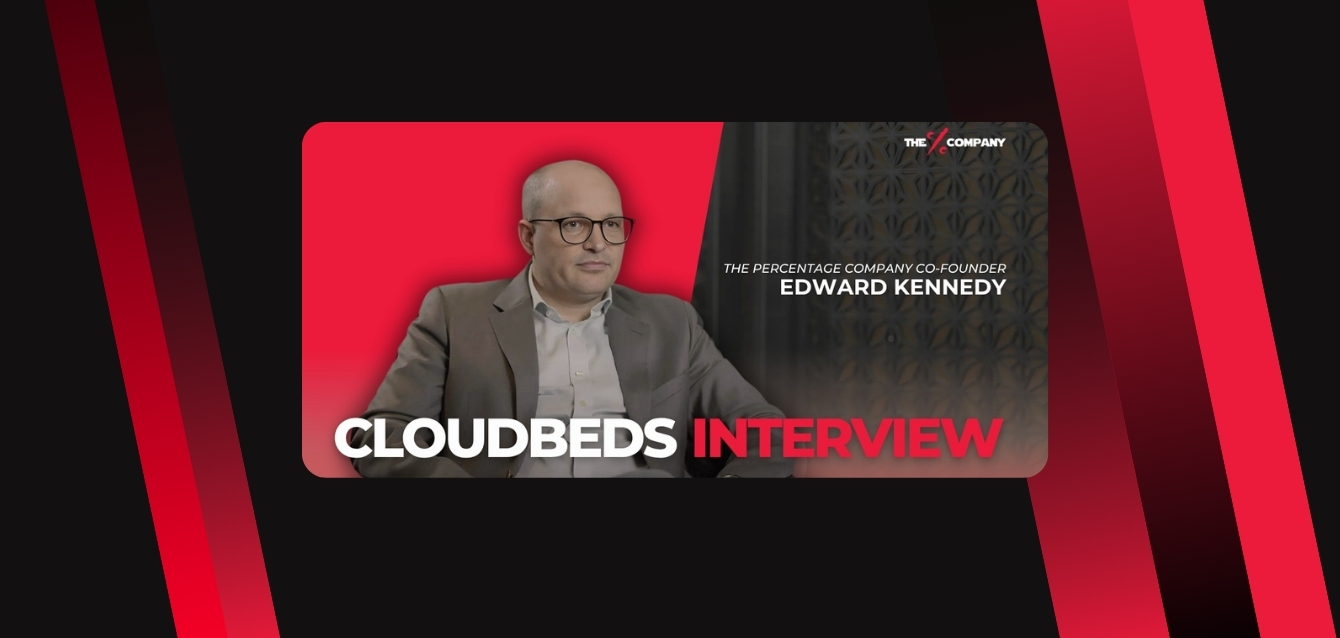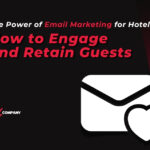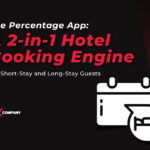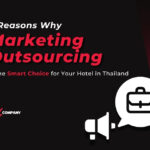Watch the Full Interview between Edward Kennedy (Co-Founder at The Percentage Company) and Sebastien Leitner, Vice President of Partnerships at one of the world’s leading Hotel PMS providers, Cloudbeds. Here is the transcript of the video for your reference:
Edward, welcome, tell me about your current role at the company?
OK, so I’m the director of the percentage company. I focus on the technical part with my partner and co-founder focusing more on the business aspects. So, basically, we are a hotel digital marketing agency. We work with hotels around the world. So to date, in the last five years, around 500 hotels of various shapes and sizes and basically our aim is to provide a 360 degree solution for the hotel digital marketing and the technology needs.
And you got started in the hospitality industry, how did you get to where you are today?
Absolutely. So well, originally, I started in the real estate industry, actually in Europe. So, uh, our family business was real estate. We we developed one of the largest real estate companies in in Spain at the time, and, uh, and then, uh, a colleague who was working with us at the time bought a hotel in Phuket, and I came over to basically to help him set up his tech stack, and, uh, I came with a backpack. I lived in Marbella at the time I came with a backpack to Phuket for two weeks and I never went back.
So to be clear, you probably had no intention of staying?
No, I had zero intention of staying, to be honest, but, uh, and, uh, even my mother had to dispose of my apartment. And, uh, yeah, it was quite a thing. You know, I shipped all my goods and and, uh, yeah,
You probably had to tell your mum that you’re not coming back?
Absolutely, absolutely. But yeah, I don’t regret it at all. I’ve been in Phuket since a little bit in Bangkok and a little bit in Phuket. And since 2007, that was so Yeah.
Wow. What made you start The Percentage Company? What was the inflection point?
So I’ve been involved in technology and with digital marketing since 1997, probably when I built my first website and I just felt that there was a little bit of a gap when it came to, bringing smaller properties up to the level, perhaps that the larger, more chain hotels and the the larger properties would would have so and they can’t necessarily afford to have people on payroll that have the skills required to take the property to the next level. So that’s where we saw a gap in the market and we thought, Well, let’s give it a go and see what happens. Thankfully, it’s all gone well so far.
You chose Cloudbeds at some point for the 1st property and I’m sure you had a criteria for choosing. How did you end up choosing cloudbeds?
Yeah, so my first experience was working with perhaps more legacy systems when I first came to Thailand, Uh, I installed them and used them, and I got quite familiar from an IT perspective and from a revenue management perspective. Um, but I came across cloud beds because I happened to have a mutual friend that worked in your fantastic team, uh, Jintana, who many people in Thailand will know about. And, uh, basically, we I was looking for a solution that would, as I said, bring the smaller properties up to a to a slightly higher level and to automate some of the processes that they didn’t have the staff or the ability to be able to implement, whether that be the or, you know, things like email automation or just getting access to your data, which was a new experience for me in the
hospitality business. So yeah, we we we we thought it was a great mix of extreme value for money relative to the competition. Uh, I, I studied it. I studied 12 different systems at the time. And I studied the processes of each property with my co-founder, Paulo, and we basically reverse engineered the whole hotel, and we found that the best fit and by far the best value for money was cloudbeds. And it resulted in around 70% cost savings for that first property moving from opera in those days to cloudbeds.
I’m curious what were the challenges with changing from a legacy system to a system like Cloudbeds?
Yeah. So it’s very challenging, uh, purely because you don’t always have access to your data, right? So, um, from our perspective, there was a lot of exporting data to PDF, which many people will know that it’s a challenge to convert that to excel and to get it into a format that could be imported into the new new systems. Um, that was the same experience across all systems. POS, PMS accounting systems and accounting systems we changed also, as we wanted a digital forward, uh, tech stack.
So we wanted to have some systems that would, you know, bring the property up to the new century. Um, so yeah, a lot of the other challenges related to staff wanting to change that. There’s always a barrier to change in any organization. So convincing people that this is best for them and that they’ll save time and save energy and save time to talk with their customers and the guests, is challenging. But once you get over that hurdle, it worked out quite well.
So data extraction and training?
Yeah, absolutely. As I said, we work a lot in Thailand and the challenges, especially in the accounting space, are difficult because of, you know, statutory requirements and these kinds of things. But overall it’s about being a little bit pragmatic and understanding that there is no such thing as a perfect PMS in this world. But the cost benefit analysis is by far on Cloudbeds side so that’s why we chose it.
Are the challenges different based on the hotel size?
Um, I would say we’ve worked with some very small properties 5 or 6 sort of villa properties up to 400 rooms that we’ve installed cloudbeds with. I would say the difficulty is primarily with the number of staff and the layers of management. So the more staff you have, the more reporting requirements and the more layers of discussion you need to be able to to get the green light to change the system. I think that would probably be the only difference, but each property is unique in its own aspects.
So we work with properties where we’ve installed cloudbeds where they might have a package, a wellness division, part of their business, whereas other ones are more, You know you might. You might term more business hotels, but each so each one’s got slightly different requirements. But that’s why we like the APP store that comes with Cloudbeds, the marketplace, because it means that you can build a customized tech stack for whatever your size. You can find the right mix of technology and tools to be able to get you where you want to go. Basically.
What’s your favorite function within the Cloudbeds system?
I’d say with the challenges of accessing data and legacy systems. I would say that open API is. I’m slightly biased on that because we build applications, I should say, but obviously work with cloudbeds. But I think the open API, the concept of it, I’m a coder as well. So I’ve always been on the open side, open source side of the force if you like. So I like to have access to the data so that you can manipulate it and that can inform your marketing strategy and build the presence of the property.
But I think overall, I would say the email automation is a wonderful feature that maybe I’m not sure everyone uses that. But for me, that’s been extremely powerful in terms of removing day to day admin jobs that I used to do as a revenue manager trying to build that relationship with a customer. It just automates those processes so that you can focus on more important aspects of the job.
You are an ambassador of Cloudbeds. Tell me about the experience?
Yeah. So we’ve worked, as I said, with around 500 properties over that five year period. So we’ve reached, I think, 90 countries working with cloudbeds as an ambassador. We talk with all kinds of wonderful properties, from Aruba to Australia to London to Paris. So it’s quite a unique way of working. It’s quite, you know, at the end of the day, we’re a small company.
We’re based in some would say in the middle of nowhere in Phuket on the beach. But we’ve managed to touch all corners of the globe and reach properties and help properties around the world, especially with the accounting integrations. And, uh, yeah, we find it just an amazing thing that we can sit on the beach and still help people across the world with our cloud based partnership.
I wanna talk a little bit more about the percentage company and sort of your business
model. And how did you make it successful? Walk me through what is the primary success of your company and product?
Yeah. So our primary I would say business, the main part of our business is for sure, the sales and marketing and revenue management. So we are an outsource agency if you like, where companies can come to us if they don’t have the necessary finance to have people on payroll of a certain certain level of skill. So we come in primarily from a digital marketing standpoint. As I said, I’ve been an SEO since 1999. I’ve been working heavily in that space, so we often find that that leads us into the tech stack space.
So we need tools that will help us work faster, work more efficiently and make sure that we’re able to, uh, basically run these operations efficiently for and on behalf of the hotels. So that’s where the tech stack sort of links and marries with the digital marketing space. So I think from our perspective, we try to be a 360 degree solution. In practice some companies have some elements of that circle already, but, we try to fill the gaps and do it in such a way where, as I said, they can compete with larger, larger properties and chains and this kind of thing.
Many hoteliers are reporting difficulties in recruitment and finding staff. Are you helping them to compensate for these shortages?
Absolutely. Uh, even for our organization as well. There were challenges after the covid period. So it’s difficult to find the right mix of staff. And we’re very fortunate that Many of the staff have worked with me for 10 years or more. So we have a great core team, but in terms of client properties, yeah, that was a real challenge to get up and running to relaunch properties in Thailand where we are.
There’s significant challenges with legal restrictions coming into the country. So they weren’t the volumes that we would expect in terms of travelers and people coming to all parts of Thailand. So, yeah, properties weren’t able to find the people firstly, and to enable them to reopen in the first place. So we helped multiple properties relaunch small, medium and large, and yeah, we think it’s been quite useful to have a company like us to lean on in those difficult times.
Yes, Thailand was closed for immigration for inbound travelers for a long time.
Absolutely, almost all of our property properties were closed for a significant period of time. So, uh, as you may know, reopening a hotel is not as simple as turning the lights back on and getting back to your desk. It was especially after one year of closure or even two years of closure. So, yeah, it was a really challenging period. And I, I think we’re quite proud of the work we did to help revive properties. And and and, uh, yeah, bring them back to their former glory, as it were.
Let’s fast forward. We’ll still probably have some shortages in labor but is AI going to be the savior to help overcome these shortages?
Yeah. I mean, I’m quite a firm believer in new technology. I’m a technologist by nature. So I’ve always been engrossed in this technological world. But, um, so I see it more as a tool to help us improve the experience we offer to guests. Right, so I think if we can leverage that technology to take away a lot of the manual admin that goes on behind the scenes at every hotel in the world as you’ll know the back office work.
All this sort of manual processes that should not shouldn’t be required, really. So I think the next step will be leveraging those technologies so that the team on property can actually spend their time focusing on the guest and improving the guest experience. Because that’s something that’s something that AI can’t do. It is having that face to face connection and that engagement with a guest as they come through the door.
And that’s so important in southeast Asia
Absolutely, for me, I think it’s something that can level the playing field as well in terms of the large and small properties. You can use that technology so that in the end, it just doesn’t matter. You go to a larger hotel or a smaller hotel. It’s still a person to person contact, so you can. You can try and build a relationship and build that loyalty and that hopefully for them to come back next time.
Let’s talk about the future guest experience and what does that look like in 10 years, you know?
Yeah. I mean you’ll see it in cities around the world. Now you’ll see a lot more city hotels with more automated processes. So you check in and you don’t even see a person in some cases. Um, so I expect that will continue. Because of that, there’s always a drive for GOP as a hotel owner and operator, Um, so that that will help reduce the costs of having, uh, you know, hotels manned. So So, uh, with with lots of staff.
But I still think the fundamental principle of being a hotelier here is that you still have to have that engagement with the guest. I don’t think that will ever change. It may just require less manual processes to run the hotel, whether it be accounting and reporting or whether it’s HR or whether it’s engineering and trying to get your hotel up to spec. You know, I think that that will all come into it, But yeah, I think the fundamentals won’t change.
How are you using API and marketplace today?
Yeah, so we’ve actually built, I think, top of my head around six integrations with cloudbeds. Uh, a lot in the accounting space. So we rely heavily on that API. But we also build business intelligence reports as well, which we tend to use, uh, a lot for our own customers in terms of our revenue management, sales and marketing approach. But we even have our own highly customized booking engine, which we use the API for as well. And I ‘ve worked with lots of I counted yesterday, 18 different PMS I’ve worked with since 2007 at various hotels, 18 PMS, I think nine POS and eight accounting systems at various properties.
And I think the unique aspect of cloudbeds is the fact that you’re not afraid to share your access to the property’s data and for me, that’s a game changer. Whereas lots of the larger companies do not want you to access your data, there’s a There’s a natural barrier there. I only want to partner with larger companies, whereas we’re a boutique agency. If you like. We’re a small company, so we very much appreciate that getting the access and that’s helped take our company to the next level, which we greatly appreciate.
When hoteliers are considering a different PMS, why should they choose a PMS system that has an open API?
Yeah, I think the tendency is certainly in Thailand, which we’ve worked quite extensively, the tendency is to choose a system out of the box, you know, purely because it’s easier. And often hotels don’t have the team on site to be able to make the decision about which tech stack they should go with this. That fits their organization. Um, but I think overall data is central to or at least should be central to your entire marketing approach, whether it be email marketing, whether it be studying trends and trying to forecast what’s happening with your property. For me, the data is how you take a hotel to the next level.
That’s how we work day and night. We’re looking at data. We’re looking at data and numbers to try and find gaps where we can, you know, add incremental improvement and try to take the hotel to the next step. So, yeah, for me I’ve worked. As I said, I’ve worked with lots of other PMS, but it’s not possible to have the same approach. Ideally, we’d have a more digital forward system like cloudbeds where we can then use that data and leverage that to inform the marketing.
In your opinion, what technology will change hospitality the most?
I’m a technologist by heart. So for me I still feel AI will be the biggest game changer. I’ve long felt that’s gonna be the case. I mean, uh, whether it be embedded into PMS or whether it be part of connected apps or just dealing with the CRM aspects of a hotel and building that loyalty for me the AI will change as it’s changing every industry, uh, day by day as we as we speak.
And finally, how do we travel in 100 years?
Yeah. I mean, I’m a nervous flier, So I’d like to say that planes won’t exist. Uh, perhaps a beam me up scotty kind of thing would be my preference, but, I’m guessing it will be some kind of, super fast concorde-esque kind of plane. But I’d very much like to stay on the ground. I’m a sailor as well, so I’m happy for it to take longer as we get there eventually, but yeah planes are not for me.
Thank you Edward for your time.
Pleasure.
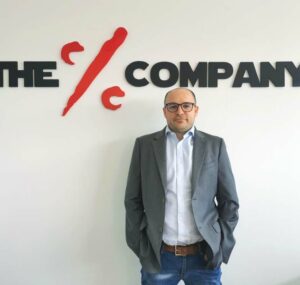
Written By: Edward Kennedy
Co-Founder & Director at The Percentage Company. I started working on websites in 1997 and have been a full-time techie since 2001. I’m committed to leveraging the latest technologies and digital marketing techniques to drive efficiency & improve online sales for our hotel clients. I have a 20+ year track record of success in growing independent hospitality & real estate brands.


